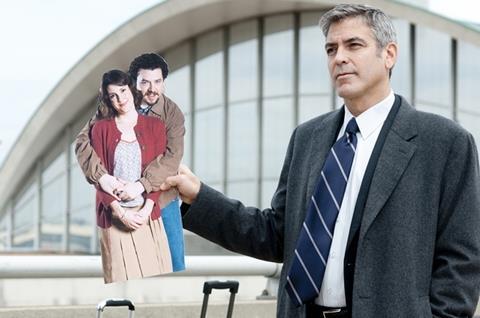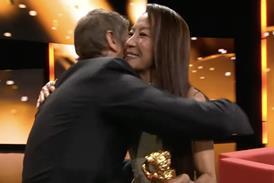
Jason Reitman came across Walter Kirn’s novel Up In The Air at the famous Sunset Boulevard shop Book Soup. He had written his first screenplayThank You For Smoking, based on the novel by Christopher Buckley, but could not get it financed and was looking for new material. “I stumbled across Up In The Air and I literally judged the book by its cover, which I know you’re not supposed to do, but I loved the cover art,” he smiles. “There was also a quote from Chris Buckley on the cover, so I thought, ‘If Chris Buckley likes it, I’ll like it.’”
Reitman did indeed respond to the novel about corporate downsizing expert Ryan Bingham, who spends most of his existence on the road. “There was something very interesting to me about this man who fired people for a living, who collected airmiles and had a very unusual life philosophy which was to live alone from hub to hub with an empty life.”
Reitman started writing the screenplay six years ago, before he became one of Hollywood’s hottest film-makers with …Smoking and Juno. “Over the course of those years, two things happened. I changed and the world changed. I got married and now have a baby girl, and I started learning more about the responsibility of life. Then the economy completely changed. I started to realise the firing scenes weren’t funny and couldn’t be handled in a satirical way.”
“So I decided that I needed real voices in there. I wanted to put a face to the numbers of layoffs you would read about in The Wall Street Journal.”
Reitman recruited and filmed 60 real-life laid-off employees, and fired them again on camera. “As a director, I try to get honest performances from actors but these people, who had no acting or camera experience, would sit down and their body language would change. One girl broke into hives and it became astonishingly real. This happened very early on, and it helped set the tone for the kind of movie we ended up making.”
From the start, Reitman imagined the story as a vehicle for George Clooney. “It’s hard to read that character and not think of him. It’s tricky dialogue and a tricky character to pull off, and he has the charm to do it. There are so few men anymore. There is a dearth of great American male actors who are grown-ups, not boys, and he is the greatest of them all.”
Mike Goodridge



















No comments yet